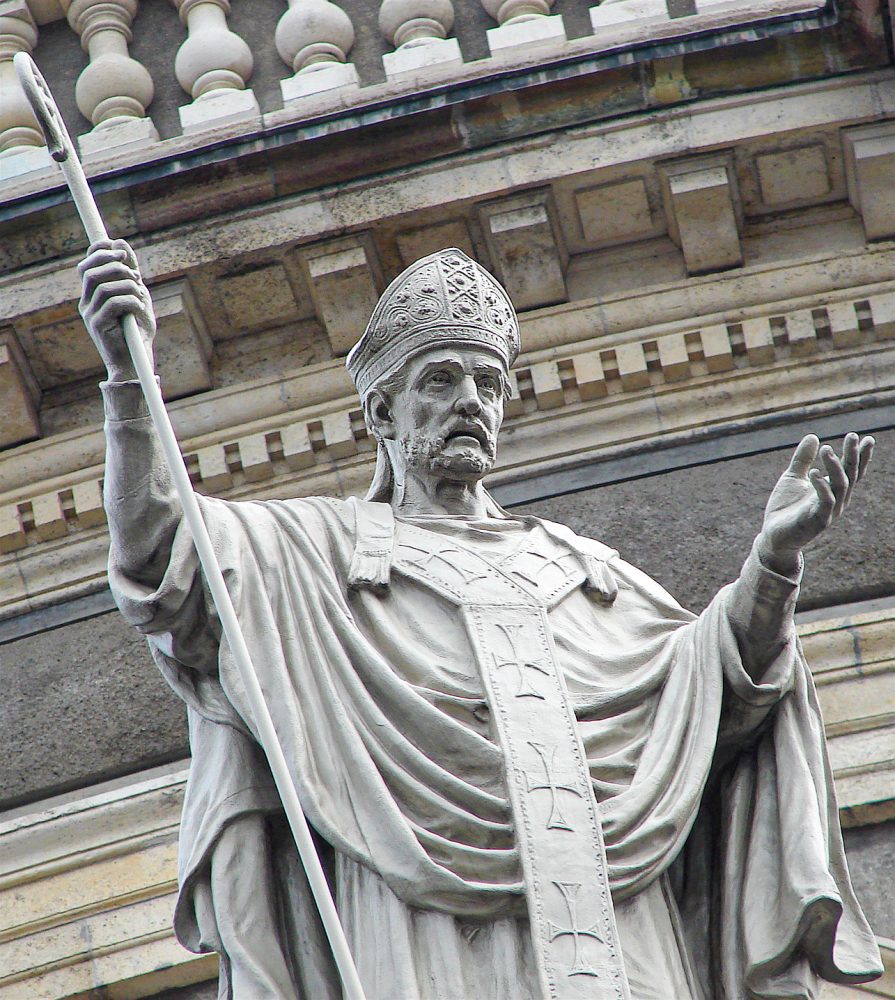Rev. José Mario O. Mandía
jmom.honlam.org
Of the Church Fathers we have studied so far, three are considered Great Fathers of the East: Athanasius, Basil the Great and Gregory of Nazianzus. Today we will meet the fourth Great Father of the East: Saint John Chrysostom (349-407).
His real name is John of Antioch (in Syria, present-day Antakya in Southern Turkey) but his eloquence earned him the nickname ‘Chrysostom,’ meaning, ‘golden-mouthed.’ John was the most prolific writer and eloquent orator among the Greek Fathers – most of his works are in the form of a sermon. His eloquence can be compared to that of Saint Augustine, one of the Great Western Fathers.
While John was still an infant, his father died. His mother Anthusa gave him an exquisite human formation and raised him in the Christian faith, though he would be baptized only in 368. He studied under Libanius, who was the most outstanding rhetorician at the time. He trained John who became a great orator of Greek learning.
“It was a very decisive turning-point in the life of Chrysostom when he met one day (about 367) the bishop Meletius. The earnest, mild, and winning character of this man captivated Chrysostom in such a measure that he soon began to withdraw from classical and profane studies and to devote himself to an ascetic and religious life” (“St John Chrysostom,” The Catholic Encyclopedia. http://www.newadvent.org/cathen/08452b.htm)
Despite all his success, John loved solitude and lived as a hermit for four years, undertaking strict penances to the point that he fell sick and had to return to the Christian community in Antioch.
“The Lord, his biographer explains, intervened with the illness at the right moment to enable John to follow his true vocation. In fact, he himself was later to write that were he to choose between the troubles of Church government and the tranquility of monastic life, he would have preferred pastoral service a thousand times (cf. On the Priesthood, 6, 7): it was precisely to this that Chrysostom felt called.
“Intimacy with the Word of God, cultivated in his years at the hermitage, had developed in him an irresistible urge to preach the Gospel, to give to others what he himself had received in his years of meditation. The missionary ideal thus launched him into pastoral care, his heart on fire” (General Audience, 19 September 2007).
Meletius, bishop of Antioch, saw the potential in John. He baptized him and in 381, ordained him a deacon. Bishop Flavian ordained him priest in 386. “For twelve years, from 386 to 397, [John] discharged his office with such zeal, ability and success that he established forever his title as the greatest of Christian pulpit orators. It was during this time that he delivered the most famous of his homilies” (Quasten, III, p. 425). These homilies were exegetical works on the Old and New Testaments.
“Chrysostom is among the most prolific of the Fathers: 17 treatises, more than 700 authentic homilies, commentaries on Matthew and on Paul (Letters to the Romans, Corinthians, Ephesians and Hebrews) and 241 letters are extant” (Benedict XVI, General Audience, 19 September 2007).
“He carried out his priestly ministry there [in Antioch] for about 11 years, until 397, when, appointed Bishop of Constantinople, he exercised his episcopal ministry in the capital of the Empire prior to his two exiles, which succeeded one close upon the other – in 403 and 407” (General Audience, 19 September 2007).
John always took into account the needs of his listeners. Aside from being an exemplary Pastor, he gave practical advice, as for example: “From the tenderest age, arm children with spiritual weapons and teach them to make the Sign of the Cross on their forehead with their hand” (Homily, 12, 7 on First Corinthians).
“Following childhood is the sea of adolescence, where violent winds blow…, for concupiscence… grows within us” (Homily 81, 5 on Matthew’s Gospel).
John taught that the first child born to a family is “like a bridge; the three become one flesh, because the child joins the two parts” (Homily 12, 5 on the Letter to the Colossians), and form “a family, a Church in miniature” (Homily 20, 6 on the Letter to the Ephesians).
Chrysostom also made the lay faithful conscious of their mission: “Baptism will also make you king, priest and prophet” (Homily 3, 5 on Second Corinthians).
John also reformed the idea of the Greek ‘polis’ and proposed a new idea of society which can be considered the beginnings of Christian social teaching. At the heart of this is the idea that the individual person is of primary importance.
“The primacy of the person is also a consequence of the fact that it is truly by starting with the person that the city is built, whereas in the Greek ‘polis’ the homeland took precedence over the individual who was totally subordinated to the city as a whole. So it was that a society built on the Christian conscience came into being with Chrysostom. And he tells us that our ‘polis’ [city] is another, ‘our commonwealth is in heaven’ (Phil 3: 20) and our homeland, even on this earth, makes us all equal, brothers and sisters, and binds us to solidarity” (General Audience, 26 September 2007).


 Follow
Follow


